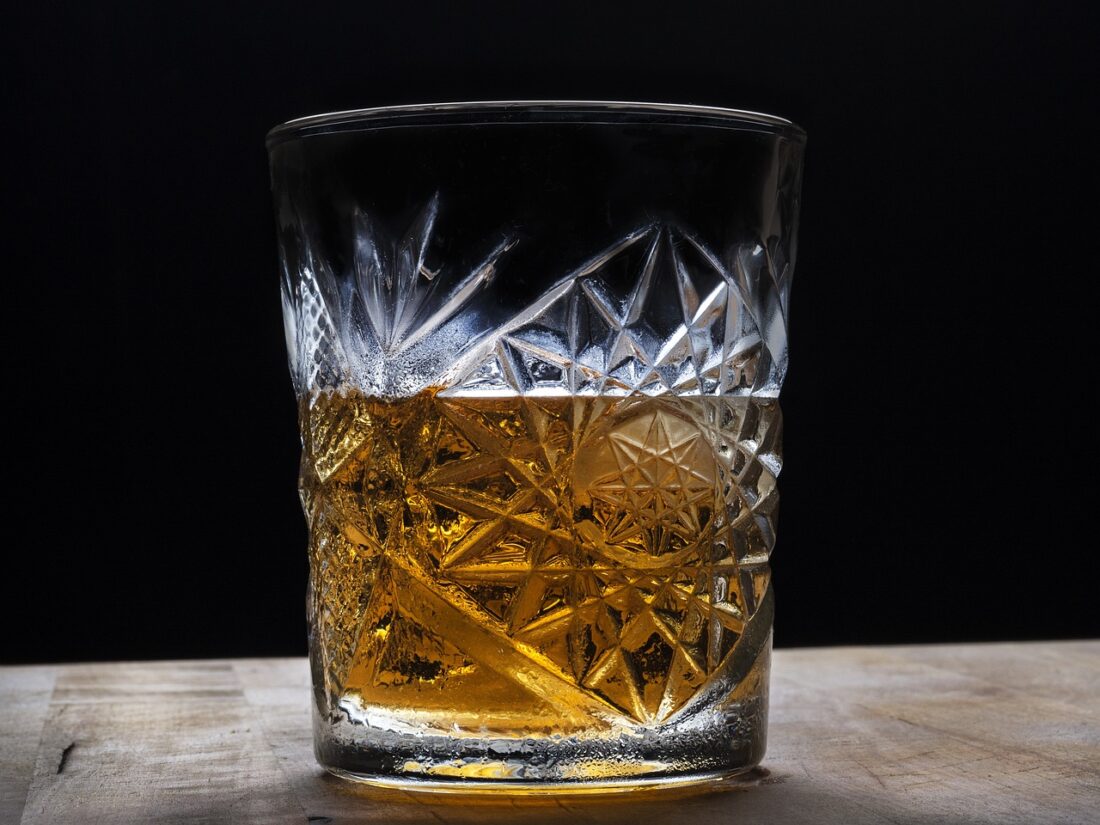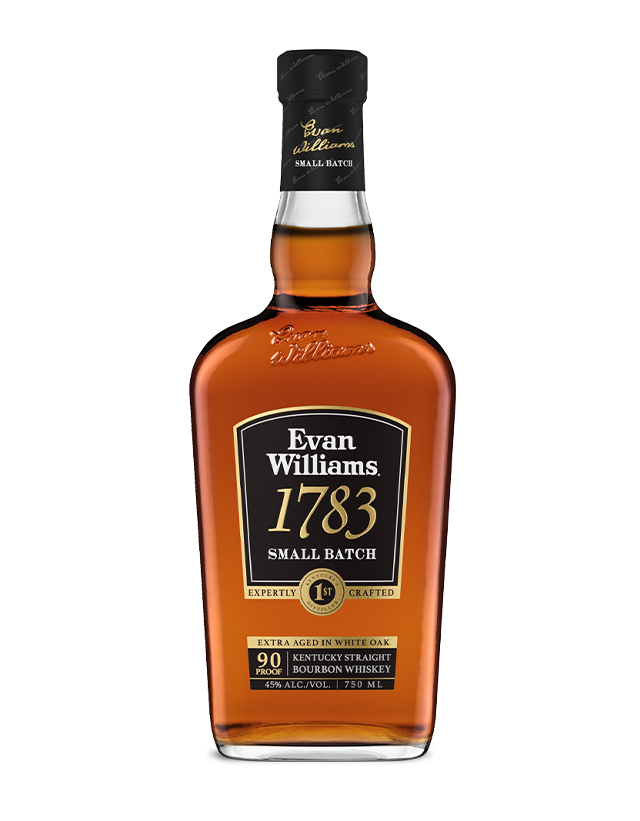
When it comes to affordable bourbons, Evan Williams is a name that frequently comes up. The brand’s Black Label is a popular choice for those looking for a budget-friendly option, but Evan Williams 1783 is a step up in terms of quality and price. As a bourbon enthusiast, I was curious to see how the two compared in a blind taste test.
Evan Williams 1783 is marketed as a small-batch bourbon, with a higher proof and fancier bottle than the Black Label. As someone who enjoys trying new bourbons, I was excited to see if the extra cost was worth it. In this article, I’ll be sharing my thoughts on the taste, aroma, and overall experience of drinking both Evan Williams 1783 and Evan Williams Black Label.
Table of Contents
History of Evan Williams 1783 and Evan Williams Black Label
 photo credit: heavenhilldistillery.com
photo credit: heavenhilldistillery.com
Evan Williams 1783’s History
Evan Williams 1783 is named after the year that Evan Williams, a Welsh immigrant, established his distillery in Kentucky. Williams was a prominent figure in the early days of Kentucky distilling, and his distillery was one of the first licensed distilleries in the state.
Evan Williams 1783 is a small batch bourbon that has been aged for 10 years. It is made from a mash bill of 75% corn, 13% rye, and 12% malted barley. The bourbon is bottled at 86 proof and has a smooth, complex flavor with notes of caramel and vanilla.
 photo credit: www.astorwines.com
photo credit: www.astorwines.com
Evan Williams Black Label’s History
Evan Williams Black Label is a straight bourbon that is aged for at least 4 years. It is made from a mash bill of 78% corn, 10% rye, and 12% barley. The bourbon is bottled at 86 proof and has a smooth, mellow flavor with notes of caramel and oak.
Evan Williams Black Label is often referred to as “Black Label” due to its distinctive black label. The bourbon is a favorite among bourbon enthusiasts and is known for its high quality and affordable price.
Production Process
Evan Williams 1783’s Production Process
Evan Williams 1783 is a small batch bourbon that is produced by Heaven Hill Distillery. It is made from a mash bill of 75% corn, 13% rye, and 12% malted barley. The bourbon is aged for 8–10 years in charred white oak barrels.
The production process starts with the selection of high-quality grains, which are milled and mixed with water to create a mash. Yeast is then added to the mash to initiate the fermentation process. The fermented mash is then distilled in copper pot stills to produce a clear, high-proof spirit.
After distillation, the spirit is placed in charred white oak barrels for aging. The barrels are stored in a temperature-controlled warehouse for 8–10 years, allowing the bourbon to develop its unique flavor and aroma.
Once the bourbon has aged to perfection, it is bottled at 90 proof and labeled Evan Williams 1783. The result is a smooth and complex bourbon with notes of vanilla, caramel, and oak.
Evan Williams Black Label’s Production Process
Evan Williams Black Label is a classic bourbon that is also produced by Heaven Hill Distillery. It is made from a mash bill of 78% corn, 10% rye, and 12% barley. The bourbon is aged for at least four years in charred white oak barrels.
The production process for Evan Williams Black Label is similar to that of Evan Williams 1783. High-quality grains are selected, milled, and mixed with water to create a mash. Yeast is then added to the mash to initiate the fermentation process. The fermented mash is then distilled in copper pot stills to produce a clear, high-proof spirit.
After distillation, the spirit is placed in charred white oak barrels for aging. The barrels are stored in a temperature-controlled warehouse for at least four years, allowing the bourbon to develop its unique flavor and aroma.
Once the bourbon has aged to perfection, it is bottled at 86 proof and labeled as Evan Williams Black Label. The result is a classic bourbon with a smooth and well-balanced flavor profile.
Taste Comparison
When it comes to comparing Evan Williams 1783 and Evan Williams Black Label, there are some notable differences in taste that I have observed. Here is a breakdown of what I found:
Evan Williams 1783
Evan Williams 1783 has a sweet aroma with hints of vanilla and honey. On the palate, it has a smooth and rich flavor with notes of oak, butter, and spice. The finish is long and warming, with a subtle sweetness that lingers.
Evan Williams Black Label
Evan Williams Black Label has a slightly more intense aroma with a stronger alcohol presence. On the palate, it has a bolder flavor with a stronger emphasis on char and grain. The finish is shorter and less sweet than the 1783.
Price Comparison
When it comes to choosing between Evan Williams 1783 and Evan Williams Black Label, price is definitely a factor to consider. Here’s a quick comparison:
- Evan Williams 1783: This small batch bourbon is priced at around $20 for a 750ml bottle. It’s a bit more expensive than the Evan Williams Black Label, but still affordable for most bourbon enthusiasts.
- Evan Williams Black Label: This is the main offering in the Evan Williams family of bourbons and is priced at around $15 for a 750ml bottle. It’s definitely one of the most affordable bourbons out there, and a great option for those on a budget.
Conclusion
After comparing Evan Williams 1783 and Evan Williams Black Label, I can say that both bourbons are great in their own way. While Evan Williams 1783 has a higher proof and a more complex flavor profile, Evan Williams Black Label is a solid, affordable option that can be enjoyed neat or in cocktails.
Both Evan Williams 1783 and Evan Williams Black Label are great bourbons that offer something unique. Whether you are a seasoned bourbon drinker or a newcomer to the world of whiskey, you can’t go wrong with either of these options.
Related Posts
If you’re interested in comparing different whiskies, you might want to check out some of these related posts:
- Johnnie Walker Blue vs Black: Which One Should You Choose? This post compares two popular blends of Scotch whisky, Johnnie Walker Blue Label and Black Label. It discusses the differences in flavor, price, and overall quality between the two, helping you decide which one is right for you.
- Basil Hayden Bourbon Whiskey vs. Woodford Reserve: The Smooth Showdown This post pits two smooth and popular bourbons against each other: Basil Hayden’s and Woodford Reserve. It explores the differences in flavor, aroma, and overall quality, helping you decide which one to try next.
- Ardberg 10 vs Laphroaig 10: Which Is the Better Whiskey? If you’re a fan of peated scotch whisky, you might want to check out this post, which compares two popular Islay whiskies: Ardbeg 10 and Laphroaig 10. It discusses the differences in flavor, aroma, and overall quality, helping you decide which one to try next.
- Jameson Irish Whiskey vs Jack Daniel’s Old No. 7 – Which One Takes the Crown? This post compares two iconic whiskeys: Jameson Irish Whiskey and Jack Daniel’s Old No. 7. It explores the differences in flavor, price, and overall quality, helping you decide which one you prefer.
- Eagle Rare vs Blanton’s Bourbon: Which One Should You Choose? This post compares two popular bourbons: Eagle Rare and Blanton’s. It discusses the differences in flavor, aroma, and overall quality, helping you decide which one to try next.



